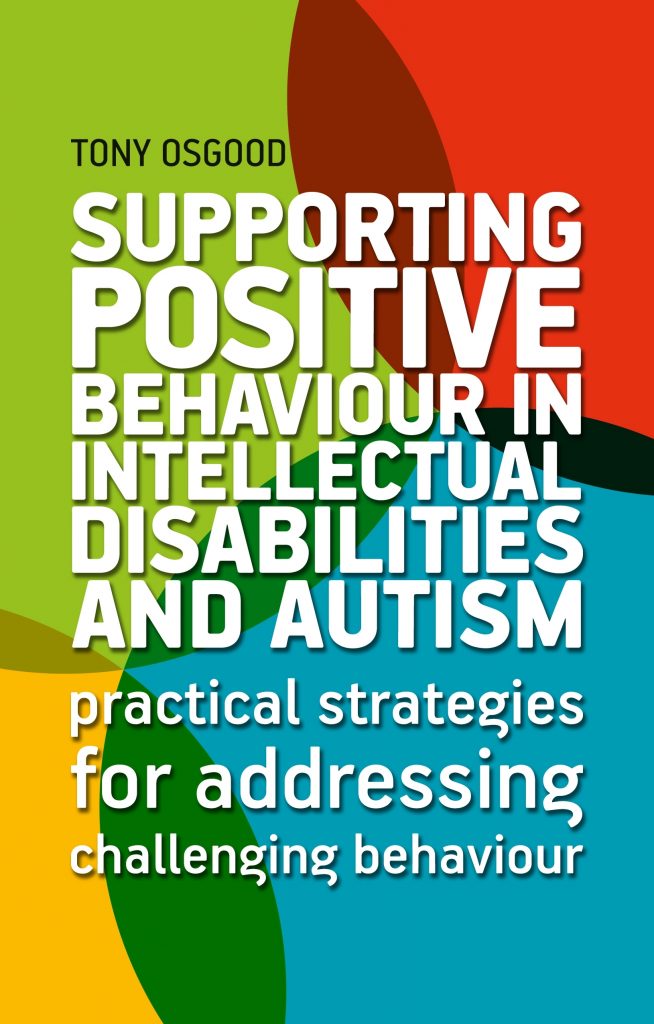We often think of challenging behaviour in terms of aggression or self-harm. But it can be any behaviour if done in unexpected places, too often or too hard. A child asking one question in class may receive praise, but if they ask half a dozen, they receive a punishment.

When Tony began writing Supporting Positive Behaviour in Intellectual Disabilities & Autism, he had one clear message in mind. “It’s important to be on the person’s side, not on their case,” Tony explains. “Understandably, when challenging behaviour happens, people are distressed. There’s a lot of doubt and blame. This is because nobody understands initially what the hell is happening. But behaviour is a language we can learn to understand.”
After several years avoiding writing this book, and supporting families and schools, staff and service, and having spent nearly twenty years teaching at University, the urge to write a common sense book about the blindingly obvious could no longer be resisted. He intentionally wrote an accessible, inspiring and practical book that might make people pause, laugh and ponder the bigger picture. “We’re often so focused on solving the puzzle of problem behaviour that we fail to notice the elephant in the room: that the person is unhappy. We might even miss seeing the person themselves!”
These behaviours may be shocking and frightening, but hidden in plain sight is a message we can learn from: behaviour is lawful even when awful, and it communicates something about the person’s life. We need to listen to the person’s behaviour as much as their words.
 “There’s such a love of data to explain challenging behaviour, we often become more robot than human. Losing your human is an occupational hazard you can avoid: simply appreciate to the person’s perspective, understand the elephants in the room they share their lives with – those elephants can squash the life out of anyone – and ask how you can ensure the person lives a fun, enjoyable, and high quality of life. Ask what you can do to make the space for the person to live the life they need and be the person they are.”
“There’s such a love of data to explain challenging behaviour, we often become more robot than human. Losing your human is an occupational hazard you can avoid: simply appreciate to the person’s perspective, understand the elephants in the room they share their lives with – those elephants can squash the life out of anyone – and ask how you can ensure the person lives a fun, enjoyable, and high quality of life. Ask what you can do to make the space for the person to live the life they need and be the person they are.”
Challenging behaviour is not the determining aspect of anybody’s life, even if it dominates how we think about them. “Challenging behaviour is simply a symptom of an unquiet life, of a fellow human in distress,” Tony says. “That’s the real story. I wanted to share the stories of people I’ve spent time with over the years, the stories of people with severe reputations. Many of these stories show how small changes make huge differences.”
The book provides an informal guide to understanding challenging behaviour, and most importantly, how to avoid and respond to it safely. The book shows how to support people in ways that don’t damage relationships and hope.
If you would like to read more articles like this and get the latest news and offers on our books about autism, why not join our mailing list? We can send information by email or post as you prefer. You may also be interested in liking our Autism, Asperger’s and related conditions Facebook page.